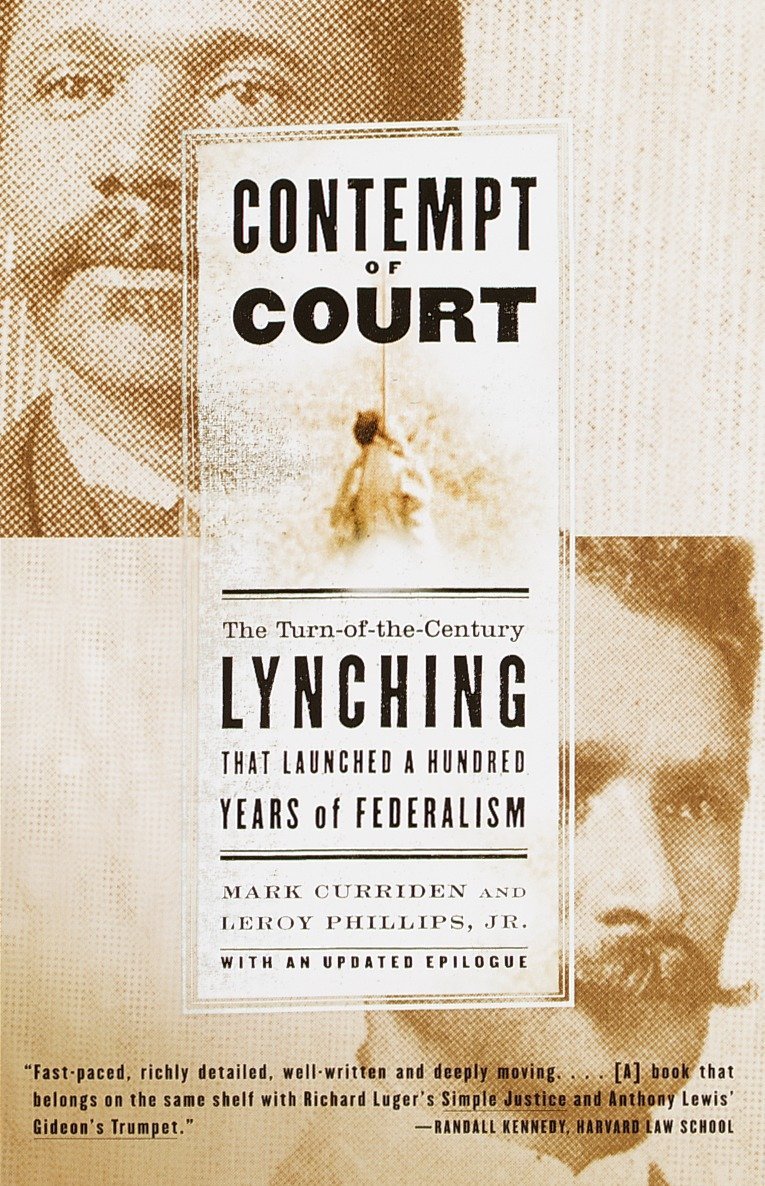 More than 100 years ago in Chattanooga, Tennessee, a black man named Ed Johnson was dragged from his jail cell and taken to the Walnut Street Bridge and lynched. That Johnson was almost certainly innocent, and that he was already condemned to die by hanging, mattered not at all to the mob that wanted to see “justice” done swiftly, and resented the federal government’s intrusion into the state of Tennessee’s justice system.
More than 100 years ago in Chattanooga, Tennessee, a black man named Ed Johnson was dragged from his jail cell and taken to the Walnut Street Bridge and lynched. That Johnson was almost certainly innocent, and that he was already condemned to die by hanging, mattered not at all to the mob that wanted to see “justice” done swiftly, and resented the federal government’s intrusion into the state of Tennessee’s justice system.
Contempt of Court is a detailed account of the trial of Ed Johnson, the futile attempts at appealing to state and federal courts to save his life, and the subsequent decision that opened the door to federal oversight of state courts.
It would probably surprise many people today to learn that it was generally not believed that the Bill of Rights applied to the states. That is, it was not assumed that states had to abide by the Bill of Rights — courts held that the rights against unreasonable search and seizure, the rights against self-incrimination, etc., were protections against the federal government only. Thus, a man like Ed Johnson tried in state court had no protections or guarantees of a fair trial granted by the federal government.
Written by Mark Curriden and Leroy Phillips, Jr., Contempt of Court is an extremely well-written and researched account from the impact on the individuals involved in the trial and lynching, to the impact of the legal decisions on the rest of the country.
It is a sad fact that Johnson’s lynching was not unusual, excepting the resulting trial held by the United States Supreme Court that found the town sheriff and several members of the mob guilty of contempt of court. Curriden and Phillips take care to put Johnson’s case in context, lest the reader think that Johnson’s case received special attention because it was so horrific.
It was against the odds that Johnson’s appeal would be heard by the Supreme Court, and the contempt charges that the court levied against the sheriff and members of the mob were unique. The Supreme Court had not held a trial of the sort before, nor since.
The authors have done a masterful job of telling the story and making it engaging, without shying away from explaining the legal issues to the layperson. It paints a bleak picture of life in the 1900s south, and what it meant to a black person accused of a crime against a white person – or to be a white person who committed the sin of trying to defend a black man accused of a crime.
I give Contempt of Court very high marks on all counts. Its writing is solid and compelling. The book delivers on the promise of its title and topic, and it’s really something that anyone living in the U.S. should read.
